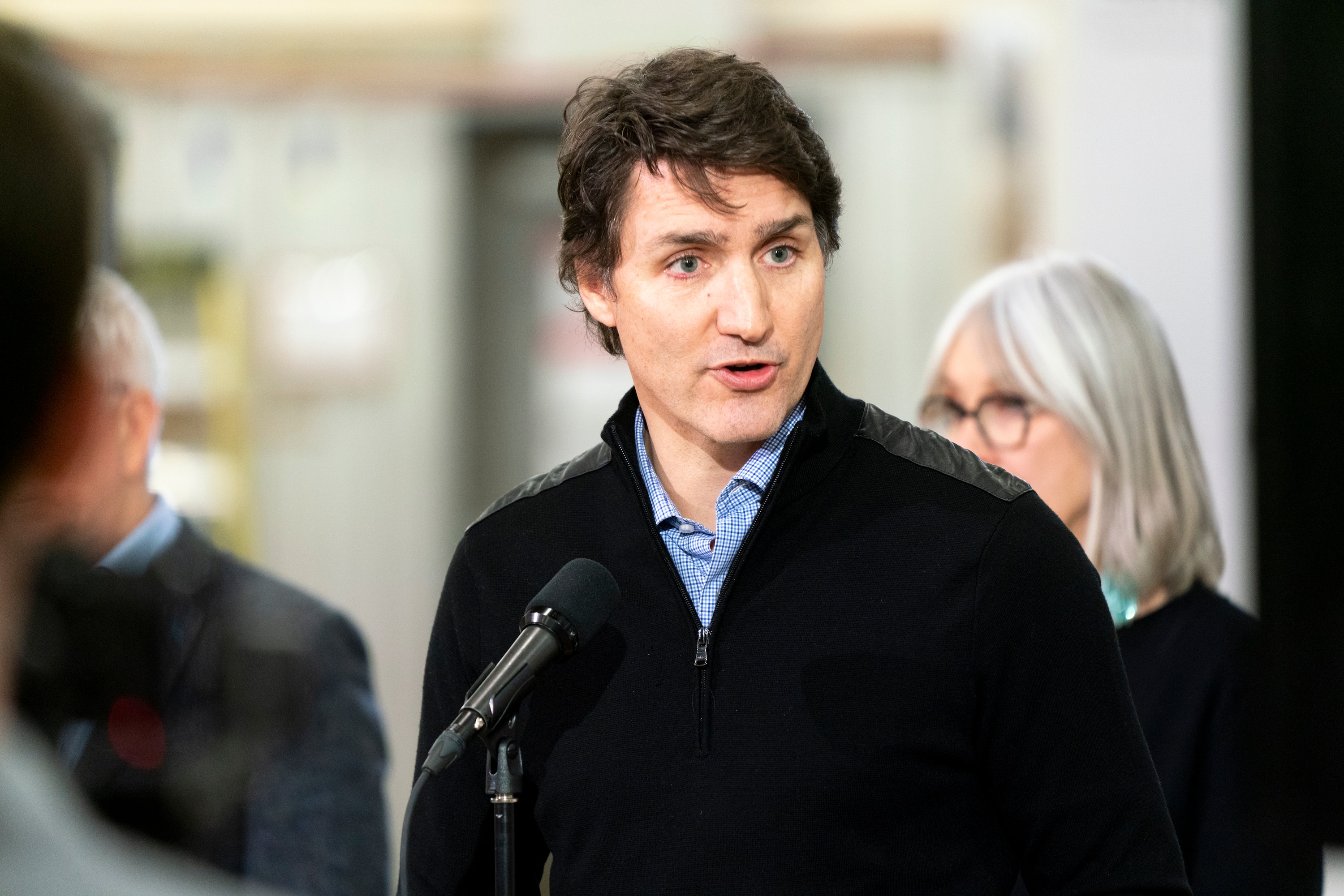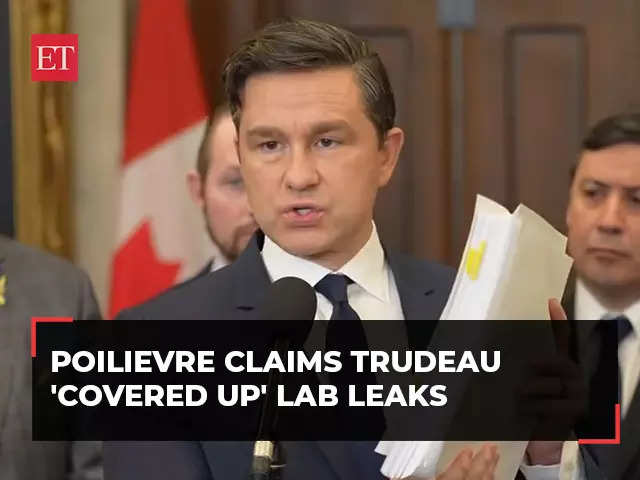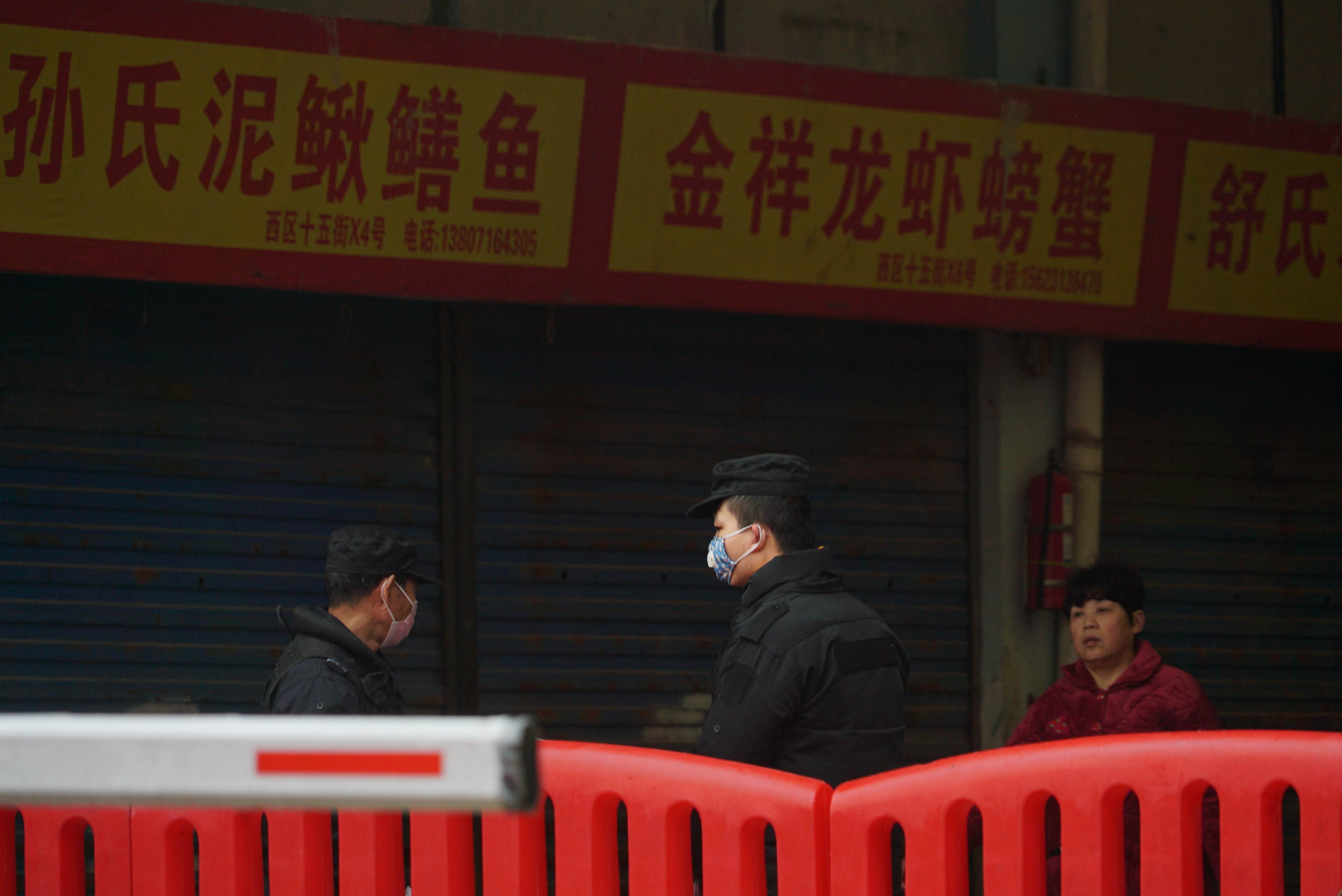New book debunks Winnipeg-lab conspiracy theory but questions collaboration with Chinese military scientist

Journalist Elaine Dewar found 2019 virus shipment from National Microbiology Lab had no link to coronavirus
Karen Pauls · CBC News · Posted: Aug 31, 2021 9:00 AM CT | Last Updated: September 2

A new book concludes co-operation between Canada's National Microbiology Lab in Winnipeg and China's Wuhan Institute of Virology played no part in the origin of the coronavirus pandemic but raises questions about links between one of the researchers fired from the lab and a prominent Chinese virologist affiliated with the military.
Toronto-based freelance journalist Elaine Dewar says she set out to investigate the hypothesis that the coronavirus was leaked from the Wuhan lab by looking at the science and financial and geopolitical interests related to the theory.
As part of that, she looked into whether an approved shipment of Ebola and henipah viruses in March 2019 from the Winnipeg lab to Wuhan had anything to do with the pandemic after conspiracy theories suggesting it did surfaced online.
Months after that shipment, in July 2019, NML scientists Xiangguo Qiu and husband Keding Cheng were escorted from the Winnipeg lab and had their security clearances revoked. They were fired last January, and to date, the Public Health Agency of Canada (PHAC), which runs Canada's only Level 4 biosafety lab, has not explained why.
Dewar did not find any connections between the 2019 shipment and the pandemic. CBC News has also debunked conspiracy theories making those connections.
"That particular conspiracy theory is nonsense, and there is absolutely no evidence to support it," said Dewar, whose book On the Origin of the Deadliest Pandemic in 100 Years: An Investigation comes out Tuesday.
"But there is evidence to support a very close link between the WIV and certain people at the NML."
WATCH | Journalist Elaine Dewar on some of the connections between labs in Winnipeg and Wuhan
Journalist Elaine Dewar outlines some of the connections between Canada's National Microbiology Lab in Winnipeg and China's Wuhan Institute of Virology over the years. 2:34
Co-operation with military virologist
Dewar found that Qiu worked closely with Wei Chen, a prominent Chinese virologist who holds the rank of major-general in the People's Liberation Army, and tested Chen's Ebola vaccine at the Winnipeg lab.
There is no evidence that the work went beyond routine scientific collaboration, but Dewar says the co-operation raises questions about the kind of collaborations the sensitive government lab should undertake.
"When you have civilian researchers studying Ebola, how it works, how people are infected by it, what might be done to protect them against infection, that's one thing. When you have military scientists involved, it becomes a larger question because it can be weaponized," Dewar said during a recent interview at her Toronto home.
"When you have a relationship with a country which is unfriendly … you have to ask the question, do you want leading Chinese experts having access to a lab which requires secret clearance in this country?"

Dewar also found that Qiu authored several scientific papers since she was fired from the lab. She says that suggests Qiu continued to have access to NML data, though PHAC says people who no longer work for the agency can still affiliate themselves with it in academic publications that reflect research done while they were there.
One paper, published in March 2020 and co-authored by Qiu, Chen and virologists from NML and the military-affiliated Beijing Institute of Biotechnology, drew on Ebola-related experiments performed while Qiu was at NML.
Chen, who was listed as senior author along with Qiu, is considered a national hero for her work on Ebola vaccines. She and her research team at the Academy of Military Medical Sciences in Beijing are also leading China's coronavirus response.
"When this paper was submitted (in January 2020), Xiangguo Qiu and Keding Cheng had been on suspension for six months. Did PHAC and the RCMP fail to notice that they continued to work with a leading military medical … figure in China even as the RCMP investigated them?" Dewar writes in her book.
She maintains the loss of Qiu's security clearance should have meant she no longer had access to the NML's scientific work.

In a statement provided to CBC News, PHAC said security clearance is mandatory for anyone accessing government networks or data but that access would not have been necessary to publish work based on past research done at the lab.
"All access is blocked if someone's security status/clearance is suspended or revoked," it said. "The analysis and write-up phase of the scientific process can take months to years following the experimental work ending. Final review of completed manuscripts does not require access to the laboratory or network.
"While Dr. Qiu is no longer employed by the Public Health Agency of Canada, her scientific contributions while at PHAC remain."
CBC News was not able to reach Qiu or Chen for comment.
China needed help setting up Level 4 lab
While CBC News and other media have reported on the scientific collaboration between Qiu and Chinese researchers, some of whom have military affiliations, Dewar's book provides some historical context.
China has large investments in regions of Africa impacted by Ebola, which is why it was looking for effective vaccines, treatments and diagnostic tests.
However, Ebola research must be done in a Level 4 lab, and China did not have one until 2018. A Level 4 virology facility is equipped to handle the most serious and deadly human and animal diseases. The Winnipeg lab is one of only a handful in North America capable of handling pathogens requiring the highest level of containment, such as Ebola.
CBC News previously broke the story that Qiu had travelled repeatedly to Wuhan in 2017-18 to help set up the newly built Level 4 lab there, develop safety and operational protocols and train staff.
Meanwhile, scientists from Canada's national lab were doing ground-breaking work on Ebola.
In 2018, Qiu and her then-boss Gary Kobinger won a Governor General's Innovation Award for their work on ZMapp, an Ebola treatment that helped save lives during the outbreaks in West Africa between 2014-2016.
Dewar found research involving Qiu and Chen going back to at least 2015 that shows Qiu tested Chen's Ebola vaccine at the Winnipeg lab.
WATCH | Ebola survivor visits Winnipeg lab in 2016, thanks Qiu for vaccine work:
Xiangguo Qiu and staff at the National Microbiology Lab in Winnipeg meet Junietta Macauley from Sierra Leone, whose life was saved by ZMapp, the Ebola vaccine they helped develop. 3:46
Details of firing still unclear
Meanwhile, the details of Qiu and Cheng's firing remain a mystery.
For months, opposition MPs have been demanding PHAC turn over unredacted documents pertaining to their dismissal, which PHAC had said was related to a "policy breach," and while the government recently dropped its attempt to block the release of the documents, Dewar is not confident we'll ever have all the answers.
"We have, instead of truth, a pile of cover-up going on," she said.
WATCH | Opposition presses government for details of NML firings:
Federal government grilled on microbiologists stripped of security clearance
After two scientists working at the National Microbiology Lab in Winnipeg were stripped of their security clearance, national security experts have raised concerns about the possibility of espionage and, on Wednesday, MPs demanded answers in the House of Commons. 2:03
PHAC did confirm the NML underwent a physical security vulnerability assessment in May 2019 as part of ongoing reviews but said its screening and security procedures have not been updated independent of the Treasury Board Secretariat policy on government security it is subject to.
May 2019 is when PHAC referred this case to the Manitoba RCMP, which confirmed the investigation is still ongoing.
In this compelling whodunnit, Elaine Dewar reads the science, follows the money, and connects the geopolitical interests to the spin.
When the first TV newscast described a SARS-like flu affecting a distant Chinese metropolis, investigative journalist Elaine Dewar started asking questions: Was SARS-CoV-2 something that came from nature, as leading scientists insisted, or did it come from a lab, and what role might controversial experiments have played in its development? Why was Wuhan the pandemic's ground zero—and why, on the other side of the Atlantic, had two researchers been marched out of a lab in Winnipeg by the RCMP? Why were governments so slow to respond to the emerging pandemic, and why, now, is the government of China refusing to cooperate with the World Health Organization? And who, or what, is DRASTIC?
Locked down in Toronto with the world at a standstill, Dewar pored over newspapers and magazines, preprints and peer-reviewed journals, email chains and blacked-out responses to access to information requests; she conducted Zoom interviews and called telephone numbers until someone answered as she hunted down the truth of the virus’s origin. In this compelling whodunnit, she reads the science, follows the money, connects the geopolitical interests to the spin—and shows how leading science journals got it wrong, leaving it to interested citizens and junior scientists to pull out the truth.















